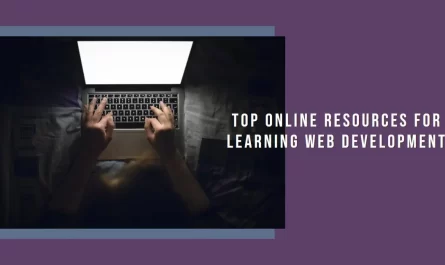Choosing a college major can be confusing. Especially when tech careers are your goal! Are you stuck between a Bachelor of Science in Computer Science (BSCS) and a Bachelor of Science bs in Software Engineering? You aren’t alone. Both degrees can lead to awesome jobs, but they are not the same.
A BSCS dives deep into the theory of computation and programming. A BS in Software Engineering focuses on building and maintaining software systems. Picking the right degree depends on your dream job and what you enjoy learning. Which one truly sets you up for more chances? While both offer great paths, their different angles create different opportunities after graduation.
Curriculum Deep Dive: BSCS vs. BS in Software Engineering
Let’s get into the nitty-gritty. What will you study? How do these two programs stack up when you look at their core coursework?
Computer Science Core Curriculum
A BSCS is all about the “why” behind computers. You’ll spend a lot of time on the math and science that make computers work. It covers the design of algorithms, how to organize data effectively, and different programming languages. Get ready for classes in calculus, discrete math, and theoretical computer science.
You will spend time learning to solve problems in creative ways. It’s also a chance to build some serious computational thinking skills. This degree will give you a solid grip on the basics.
BS in Software Engineering Core Curriculum
Software Engineering is all about the “how”. How do you build complex software on time and within budget? This program looks at the whole process. It covers planning, designing, building, testing, and maintaining software.
Expect teamwork and hands-on projects. You’ll learn how to work with others to create real-world applications. This also includes testing code, assuring its quality, and maintaining.
Career Paths and Job Opportunities
What jobs can you expect after graduation? Let’s look at some options for each degree. It is also important to consider potential salaries!
Opportunities for Computer Science Graduates
A BSCS can open doors to many jobs. One popular choice is becoming a software developer. You might also find roles like a data scientist, AI/ML engineer, or systems architect. These roles need a strong understanding of how computer systems work.
Many with a BSCS pursue research or teaching. Think about working in a university lab or developing new tech. Salaries can range widely, but Glassdoor estimates software developers earn an average of $110,000 per year.
Opportunities for BS in Software Engineering Graduates
If you have a BS in Software Engineering, you’ll be ready to jump into building software. Think roles like software engineer, application developer, or DevOps engineer. Some grads move into project management too.
These jobs focus on the practical side of things, also teamwork. You might work on enterprise software or web applications. According to Salary.com, software engineers can expect to earn around $115,000 per year.
Skill Sets and Specializations
Both degrees let you specialize. Which one lines up with your skills and interests? What are the main options?
BSCS: Specialization Options
With a BSCS, you can dive deep into areas like data science or AI. Cybersecurity is also a great option. Game development is another popular choice.
These specializations often involve research. You might study advanced algorithms or analyze complex data. You’ll be well-prepared for cutting-edge research.
BS in Software Engineering: Specialization Options
Software Engineering specializations tend to be more industry-focused. Web development, mobile development, and cloud computing are common. You could also focus on embedded systems.
These areas emphasize practical skills. You’ll learn how to design software and understand common patterns. It’s about being ready for industry challenges.
Industry Demand and Future Trends
What does the job market look like now and in the future? Which skills will be most in demand? Let’s take a look at Computer Science, plus Software Engineering.
Current Job Market Analysis
The demand for both CS and Software Engineering graduates is high. Every industry needs tech experts. From healthcare to finance, computer skills are essential.
According to the Bureau of Labor Statistics, jobs in computer and information technology are projected to grow 15% from 2021 to 2031. That is much faster than the average for all occupations. This means job security and good pay.
Future Trends and Projections
AI, cloud computing, and other trends are reshaping both fields. As tech advances, the role of software engineers and computer scientists will evolve. New skills will be needed.
Staying up-to-date is key. Continuing education and learning new technologies will keep you ahead. The future is bright for those in tech.
Which Degree Is Right for You?
What do you think? Think about your interests and career goals. Let’s consider your fit.
Self-Assessment Questions
Ask yourself some important questions. Do you prefer theory or hands-on work? Do you like working alone or as part of a team?
What are your strengths? What subjects do you enjoy? Your answers can point you in the right direction.
Factors to Consider
Think about the curriculum, specializations, and career paths we’ve talked about. Consider the reputation of the universities you are interested in. Look for internship and research opportunities too.
Which program feels like the best fit? Where do you see yourself in five years? The right choice will set you up for success.
Conclusion
BSCS and BS in Software Engineering are both great options. Each opens doors to different tech careers. BSCS focuses on the theory, while Software Engineering focuses on practical application.
The best choice depends on your goals. Consider what you enjoy and where you want to end up. Both degrees offer promising paths, yet you must align with your goals!



